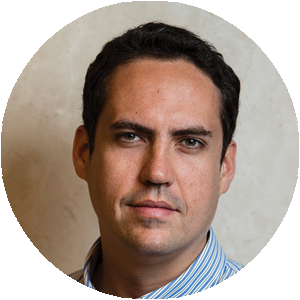Bruno Rosa, Prémio
It is time to prepare the company for the post-pandemic world. This is the sentence I have most heard over the last four weeks. With the end of 2021 approaching, many companies have embarked on updating their business plans and structure the pillars that are to sustain their growth over the forthcoming years following the financial damaged caused by Covid-19. However, what new world is this that the corporations are foreseeing? Following the debates around the need for greater digitalisation and the connectivity of businesses, we have arrived at the time to accelerate sustainable energy projects based on the sun, the winds, biomass and the embryonic prospects for hydrogen.
This greater environmental awareness of corporations is a global movement and advancing particularly in developing countries such as Brazil. With the excess in financial liquidity worldwide, investors are demanding banks and private equity funds increasingly incorporate sustainable projects into their portfolios. With greater resources, there begin to appear innovations such as the combination of solar and wind energy in the same park with the usage of lithium batteries to store the electricity generated to the following day topped up at night by wind power. Everything makes sense to reduce the consumption of fossil fuels such as oil and natural gas.
At the end of September, for example, the Anglo-Dutch energy multinational launched Shell Energy, its sustainable energy focused brand, in Brazil. One of the world’s largest oil producers is investing half a billion dollars in renewable projects just in Latin America’s largest country through to 2025. Part of these resources are going into a joint venture with Gerdau, one of the world’s largest steel producers, for the construction of a solar plant. On a call with journalists, the oil company also added that it was seeking to bring deep sea wind turbines to Brazil, an option already popular in Europe.
BRF, one of the largest foodstuff producers and owner of the brand Sadia, begins construction on a solar energy plant in early 2022 with the stated objective of reducing the costs incurred with electricity. The target is to reach the end of the decade generating 88% of the energy consumed from clean sources, said Lorival Luz, CEO of BRF. Spanish Telefônica, owner in Brazil of the Vivo brand, the largest telecommunications company in the country, has tied targets for reductions in greenhouse gas emissions to the bonuses payable to its executives.
Indeed, European countries lead the investments going into renewables in Brazil. The Italian Enel, through its subsidiary Green Power, recently launched operations of one of the largest national projects, a wind park that accounted for investment totalling some half a billion euros. EDP Renováveis, in turn, is seeking to quadruple its capacity in Brazil, making it the third largest market in the world for this company, behind only the United States and Spain.
In addition to the environmental agenda and the targets established by the Paris Agreement, these environmental projects also gain traction due to the largest hydric crisis in Brazil for the last 91 years. A lack of rainfall, a consequence of global warming, means the cost of electricity rises – helping to push inflation up close to 10%, the highest level in 21 years, according to IBGE, the entity responsible for producing national statistics.
There is also in this post-pandemic world a greater awareness about society among corporations. A study carried out by the consultancy “amo”, part of the Havas Group, pointed to one of the values most sought after by companies relates to people and the community. Indeed, for this reason, there is nothing better than protecting the environment whether to offset the costs from rising prices or to reduce the emission of polluting gases. The post-Covid era is pro-environment.







